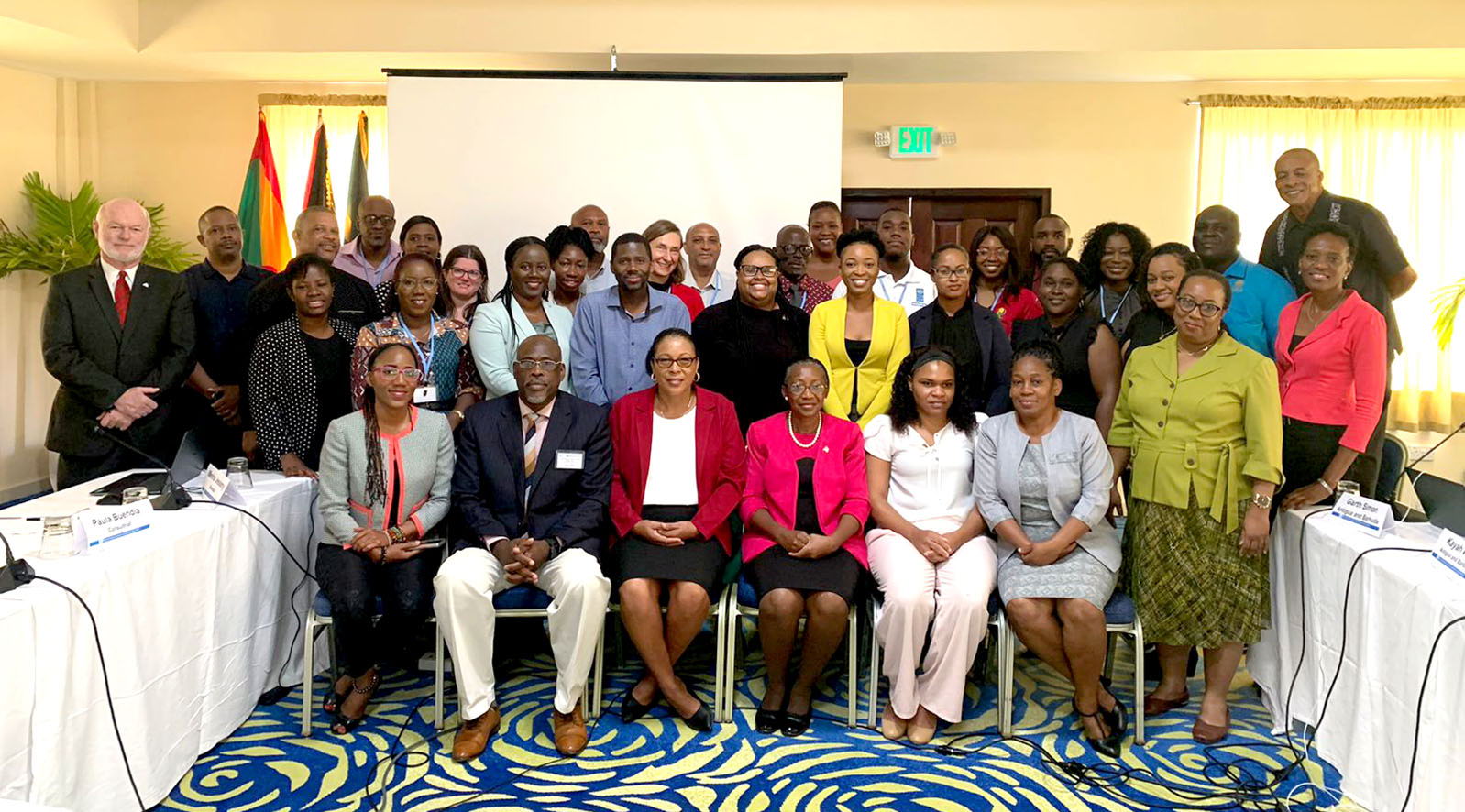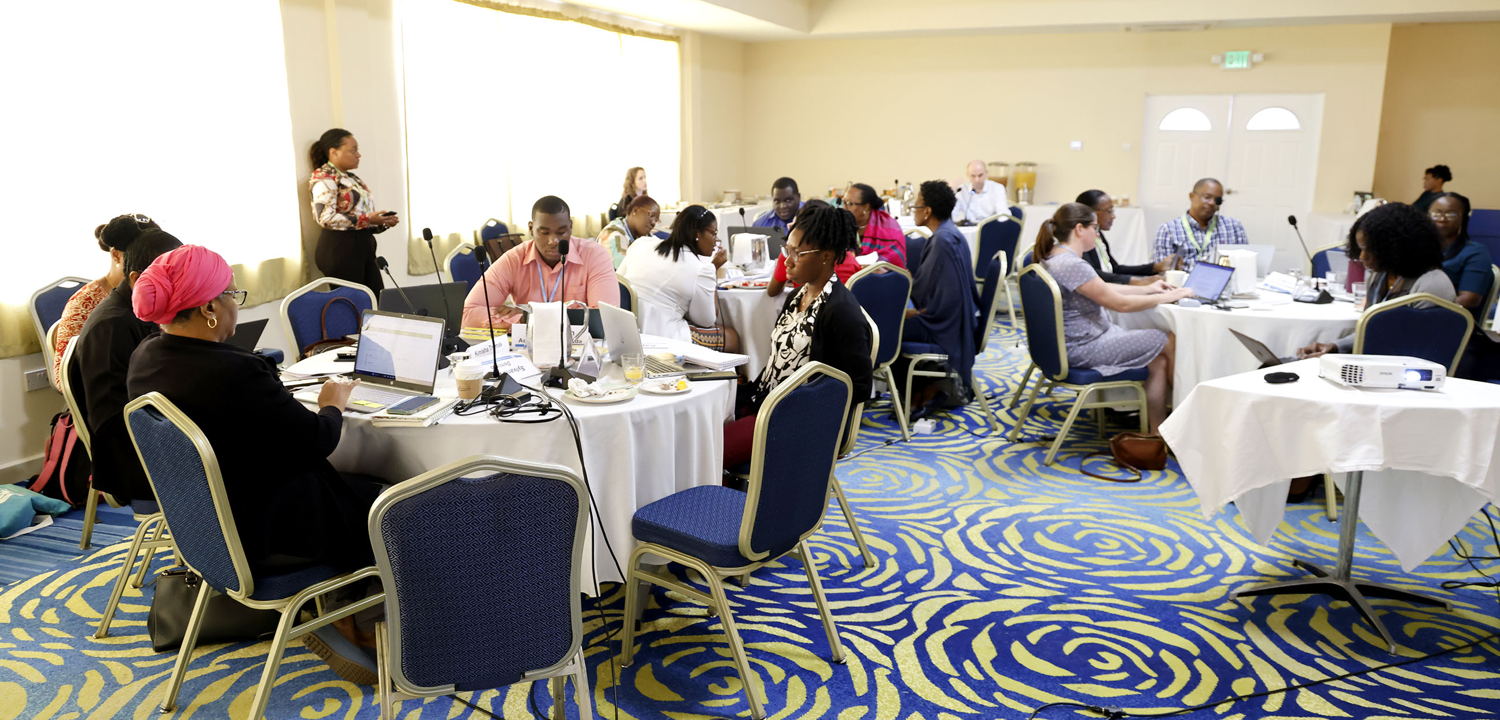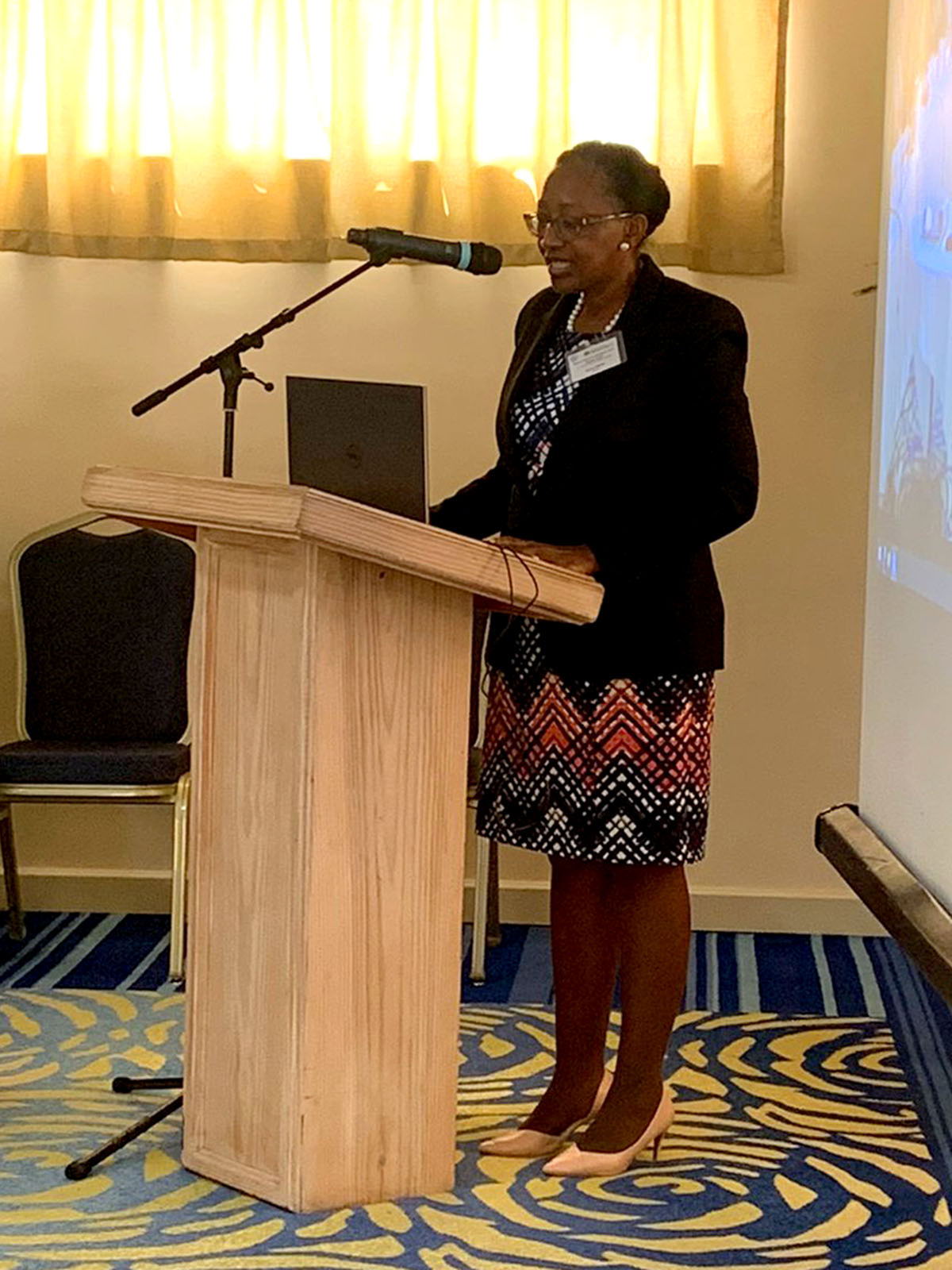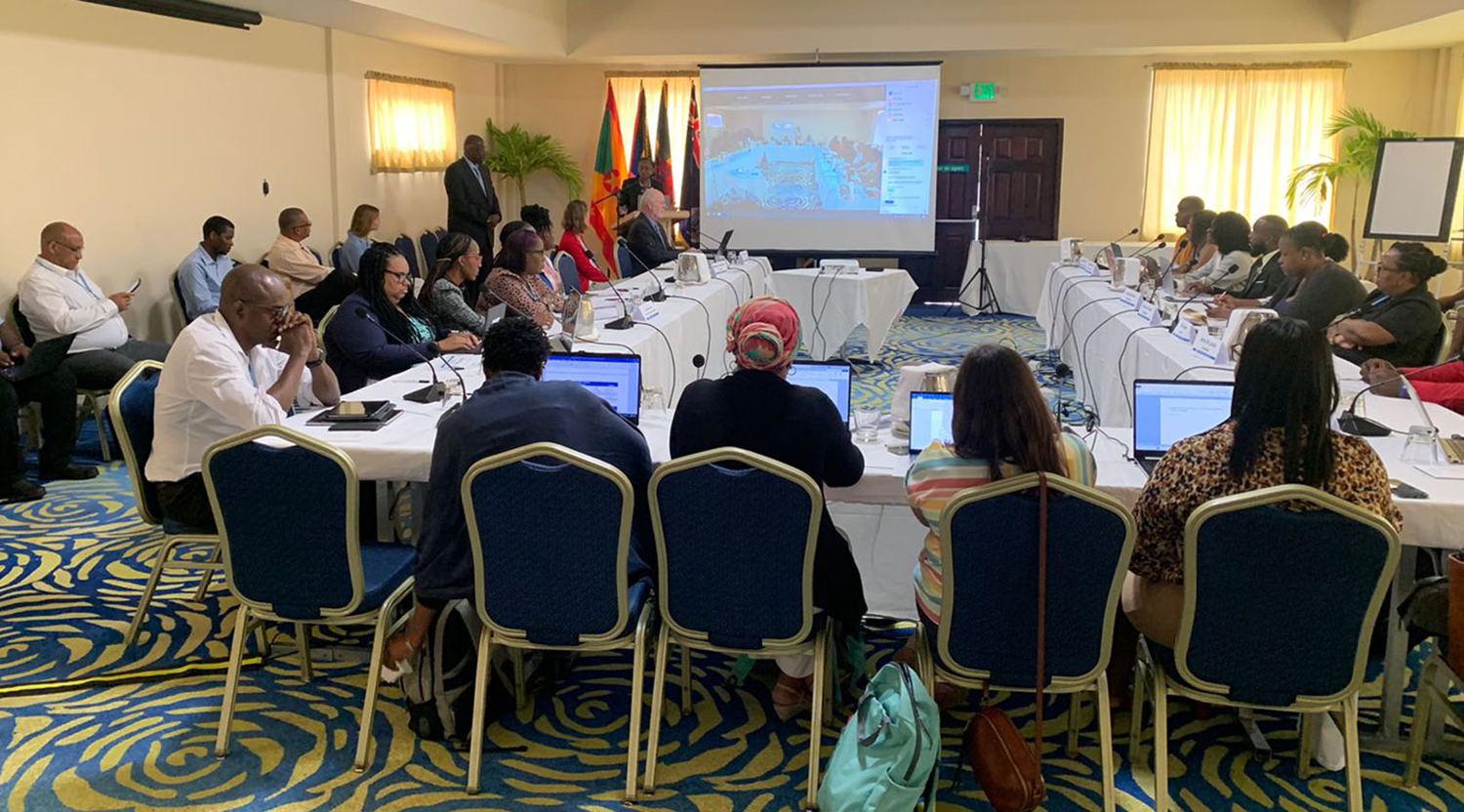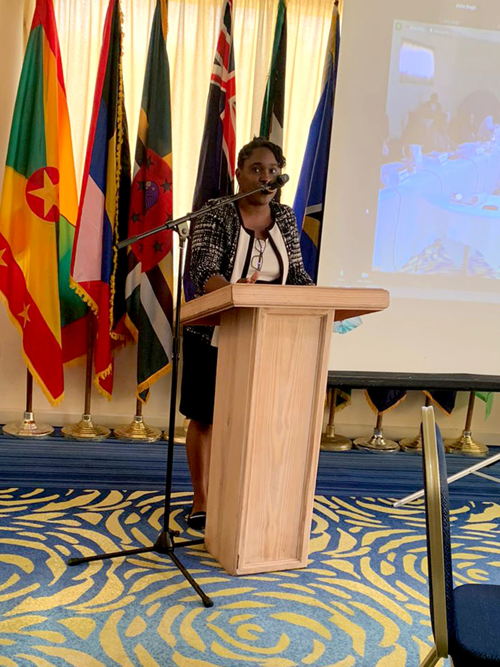OECS Seeks to Scale up and Accelerate Climate Action
OECS Media Release
April 4, 2023 — Climate Change poses an existential threat to the Caribbean and is increasingly impacting the lives of people of the region, in every sphere. With the most recent Intergovernmental Panel on Climate Change, the Sixth Assessment report (https://www.ipcc.ch/report/sixth-assessment-report-cycle/) deemed the “Final Warning,” the need for urgent and concrete climate action is undeniable.
In an effort to scale up and accelerate climate action, the OECS continues to work with Member States to support their efforts to better access climate finance. From March 27-31, 2023, the OECS brought government and private sector representatives together, at two back-to-back meetings in Grenada, with the aim of formulating and refining regional approaches to climate finance.
With the support of a readiness grant from the Green Climate Fund, under the project entitled, Improving Eastern Caribbean Engagement with the Green Climate Fund, the OECS Commission has been engaging the public and private sectors on climate finance matters as both continue to play an essential role in building climate resilience. The first meeting therefore saw the presentation of work from the project, which included a data gap assessment, a private sector engagement strategy, and a pilot project to support the integration of climate change into the curriculum of the Dominica State College.
The OECS Commission, with support from the United Nations Framework Convention on Climate Change (UNFCCC) under its Needs-Based Financing Programme, has developed, in consultation with Member States, a regional Needs-Based Finance Strategy, that seeks to address the major climate change challenges facing the Eastern Caribbean and to identify areas where regional solutions can support efforts to build climate resilience. The second meeting saw the presentation of the Strategy to representatives of Member States and key development partners who, collectively, identified critical next steps as well as possible areas where the respective development partners could engage in implementation of the Strategy
Permanent Secretary in Grenada’s Ministry of Climate Resilience, the Environment and Renewable Energy, Merinna Jessamy, reminded participants that, “Our fiscal space cannot afford the price of climate change - we must find a way to bridge the divide and close the gap.”
Danny Moonie
OECS Communications Unit
